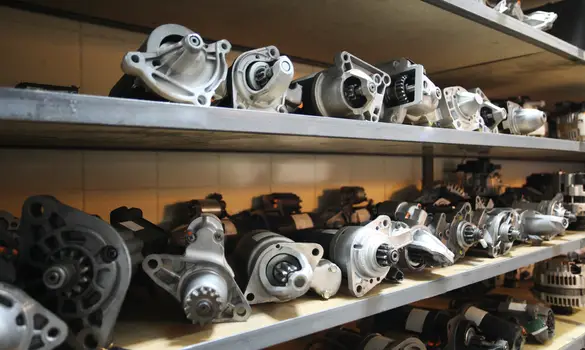Cost-conscious consumers know that buying in bulk can be a great way to save money. For example, a U.S. Department of Agriculture Economic Research Service study found that shoppers who buy food at warehouse clubs save an average of 6 percent on grain products, 11 percent on dairy and 12 percent on meat. For some items, you may save as much as 83 percent. Businesses, too, can apply bulk buying strategies to cut costs.
In order to take advantage of these types of savings, you need to employ a sound business bulk buying strategy. Otherwise, wholesale purchases can backfire on you, locking you into a relationship with the wrong supplier, saddling you with excess inventory or leaving you paying for large shipments of products with the wrong measurements. Here are three keys to employing wholesale buying strategies successfully.
Shop Suppliers
As with consumer shopping, one of the most important principles for successful savings with bulk business buying is to compare prices from different sellers. The easiest way to do this is to look online first. Wholesale supply directories such as Wholesale Central provide general listings of links to suppliers in various categories, such as medical and automotive supplies. Amazon’s Business feature and Alibaba’s subsidiary Wholesaler Market are good places to find general suppliers and compare prices. Some major retailers offer standard bulk discounts for businesses. Checking out local retailer suppliers and researching your competitors’ suppliers are other ways to locate resources.
After you’ve compiled a list of potential suppliers, you can narrow down the top ones and start contacting them to compare quotes. When looking at prices, it’s also important to inquire about items such as customer service policy, shipping rates, guarantees and returns. Paying attention to how quickly a company responds to your calls and emails can tell you a lot about their customer service. Reading online reviews and talking to customers of companies you’re researching can help you evaluate a supplier’s service.
Compare Materials And Options
With some suppliers, there are strategies you can pursue to further cut your wholesale costs as well as improve performance. One of these is getting input from your supplier on possible alternative materials you can use. For instance, one common item purchased in bulk quantities is o-rings. Many suppliers such as Apple Rubber make products out of a wide range of specialized materials for different applications, such as silicone o-rings which have sterile properties suitable for applications involving medicine and food. A specialized supplier like this keeps up with the latest technological innovations, and may be able to recommend a material that is more suitable for your desired application or more cost-efficient.
In some cases, you can save money or improve performance by using a less durable material than you were originally considering, bearing in mind that a material only needs to be as durable as its intended application requires. For instance, in the aerospace industry, while pure steel would be much stronger than aluminum, aluminum is more lightweight, malleable and rust resistant. On the other hand, titanium is stronger than aluminum but not as strong as steel, and it is more resistant to high temperatures than aluminum, but also more expensive for metal fabrication. Often, a combination of aluminum, titanium and other materials such as lithium proves to be the most efficient solution for aircraft manufacturers. The right supplier with cutting-edge knowledge of your industry can help you make these kinds of determinations.
Measure And Test Before Scaling Production
A common mistake that can cost you a lot of money is placing a bulk order before you’ve debugged your product. A mistake on a wholesale order is much more costly than a mistake on an individual order. To avoid expensive errors, it’s important to measure prototype specs precisely and double-check them prior to placing an order. A best practice is to use the most accurate measuring standard available. For instance, 1/1,000 of an inch is better than 1/100 of an inch.
To make sure your measurements are right and there are no other problems with your specs, be sure to test a prototype before placing a bulk order. This will allow you to correct any errors before wasting money on a product that is incorrectly sized or otherwise defective.
Ordering custom parts in bulk can be a cost-saving strategy if you’re careful to avoid common mistakes. Shopping different suppliers, comparing materials and testing prototypes will help prevent costly errors and ensure that your wholesale strategy stays cost-effective.
 Business First Family Business, Accounting, Finance, Investing, Marketing And Management
Business First Family Business, Accounting, Finance, Investing, Marketing And Management
